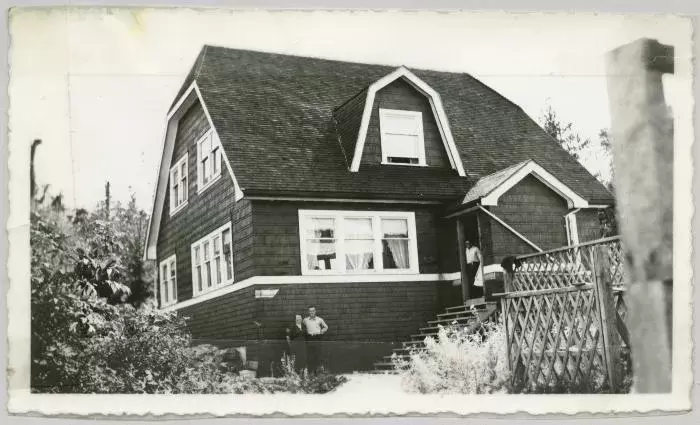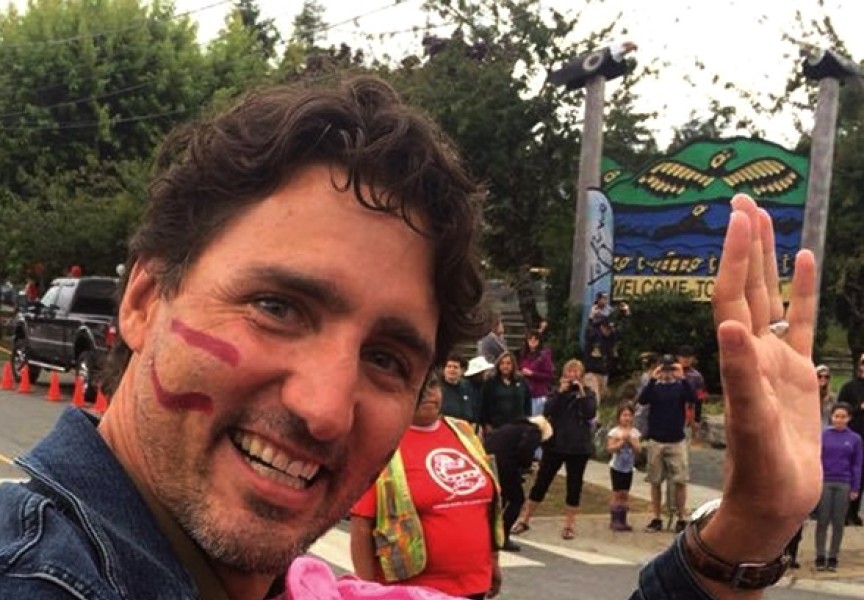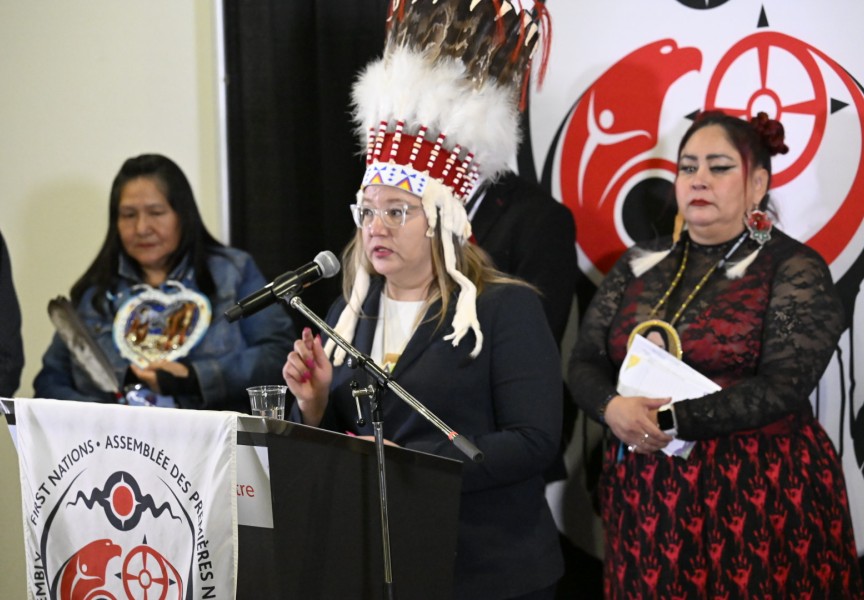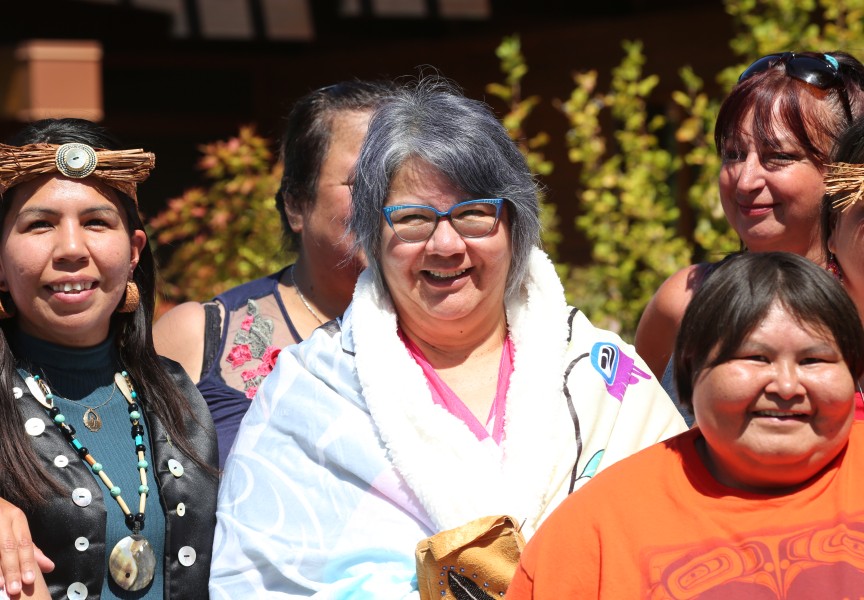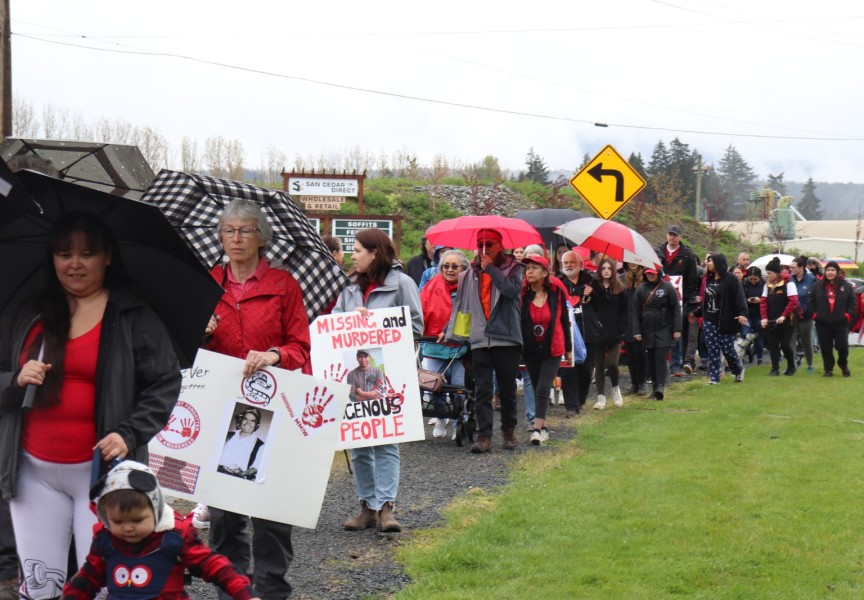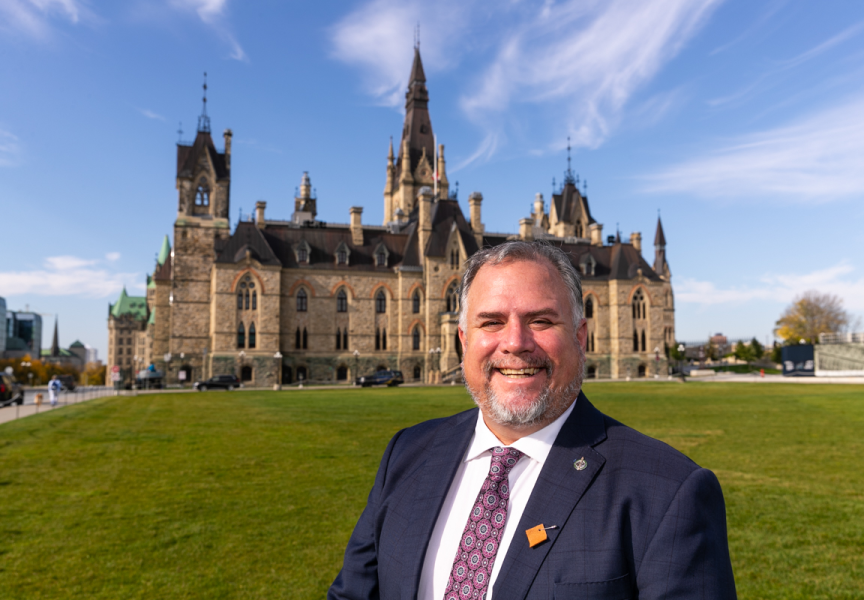Former day school students have a settlement agreement before them with final court approval expected in May.
“Yes, there’s light at the end of the tunnel,” said Richard Watts, a resolution health support worker with the NTC’s Teechuktl mental health office.
The Canadian government announced March 12 that it would provide a settlement package, including individual compensation of $10,000 for harms associated with attending day school, additional compensation for former students who suffered abuse and supports for healing from trauma and abuse.
“This agreement-in-principle brings us one step closer to bringing lasting and meaningful resolution and healing to the legacy of Indian day schools,” said Crown-Indigenous Relations Minister Carolyn Bennett. She called it “a dark and tragic chapter” in Canadian history.
For five years or more, Watts has been assisting Nuu-chah-nulth claimants who attended day schools. He said a number of Nuu-chah-nulth people would benefit from the settlement, but does not know how many individuals have applied for compensation.
When the day school suit was launched in 2009 against the Canadian government and several churches, it was joined by 800 former day school students on Vancouver Island. Across the country, an estimated 200,000 Indigenous children attended 700 federally operated day schools.
The suit was eventually dropped in the spirit of reconciliation, the litigants opting instead for a settlement negotiated out of court. Almost a decade later, many of those former students are in their 70s and 80s.
“It’s a lot of people who are affected,” Watts said. “It’s a terrible fact that they just let it drag on this long.”
Day schools are not to be confused with “day scholars,” a term used for students who attended classes but did not board at residential schools. Day scholars continue to fight for recognition and justice for the abuses they experienced.
Day schools were separate from the residential school system. The Truth and Reconciliation Commission did not consider day school students and these individuals were not included in the residential school settlement agreement reached in 2008 between the Assembly of First Nations, the Canadian government and various churches.
While day schools haven’t the same notoriety as residential schools, former students report experiencing similar physical and sexual abuse, and were forbidden from speaking their language. Watts said he sees no distinction between the two experiences.
“Day schools were little schools based on reserves,” Watts explained. “Tseshaht had one and I went to it when it was a church. We had both.”
Starting in the 1890s, the Alberni day school and the Ahousaht school on Flores Island were run by the Presbyterian Church and later the Canadian government. Another day school was located at Yuquot (Friendly Cove). The Ahousaht school burned down in 1940.
The settlement agreement was reached too late for Garry McLean, a former student and the lead plaintiff in the lawsuit, who recently died of cancer. He was aware of the impending settlement in his dying days and placed it in perspective.
“Ever since 2006, when the Indian residential schools claim was settled, we have been struggling for recognition of the harms suffered by Indian day school students, who were not part of the settlement,” said McLean, expressing relief on behalf of all former students. “This settlement will benefit all students who attended these federally operated day schools and their families and communities.”
Watts expects the day school settlement will receive court approval sometime this spring. He hopes the government will heed lessons learned from the residential school compensation process and adopt a better approach in this instance.
Under the terms proposed, former students would be able apply for the basic settlement or for additional sums ranging from $50,0000 to $200,000, based on the severity of the abuse they suffered. As well, the settlement promises a $200 million investment to support healing, wellness, education, language, culture and commemoration plus funds to cover legal fees.
Until May 3, former students can review the proposal and provide comments to the court. Anyone affected is urged to visit the website www.indiandayschools.com. In early May, the parties will seek Federal Court approval. Hearing dates are set for May 13-15.

